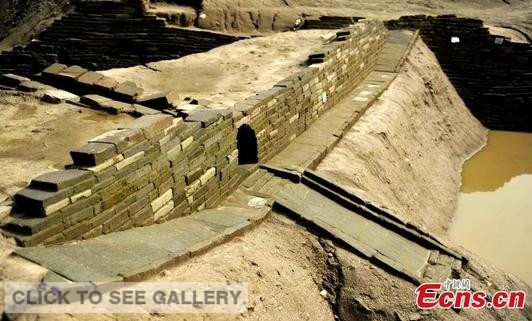The site of an ancient Buddhist garden dating back more than 1,200 years has been discovered in downtown Chengdu, capital of southwest China's Sichuan province, a local excavation team said on Monday.
Excavation of the garden, which dates back to China's Tang Dynasty (AD 618-907), was completed earlier this month near a construction site in downtown Chengdu. Archaeologists uncovered 2,500 square meters of garden relics, including a 90-meter-long canal and a pond.
Yi Li, who heads the excavation project, said that the garden may have been part of a man-made landscape adjacent to a Buddhist temple during the same period. Many Buddhist sculptures were found near the temple during the Qing Dynasty (1644-1911) more than 110 years ago.
Pottery and stone Buddhist sculptures were also uncovered from the site. According to archaeologists, gardens were built in royal courts, temples and private residences during the Tang Dynasty. Judging from the rustic quality of the pottery remains, archaeologists concluded that the garden belonged to a temple rather than a court or private residence, where pottery tended to be more elaborate.

















































